ResearCHLA Highlights

In the News

Jeffrey Bender, MD, and co-author Rosemary She, MD, of the Keck School of Medicine of USC, reported on using elimination communication, also known as natural infant hygiene, to toilet- train their infant daughter from birth. The perspective paper was published in Pediatrics and received national media coverage from outlets such as The Washington Post and Reuters Health.
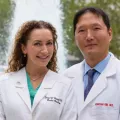
Jesse Berry, MD, and Jonathan Kim, MD, showed proof of concept for a safe, minimally invasive liquid biopsy for retinoblastoma, using fluid that is removed from the front of the eye during localized injection of chemotherapy. Their study, published in JAMA Ophthalmology, shows potential for future diagnostic and prognostic applications and was covered by numerous media outlets, including Stat News and MedPage Today.
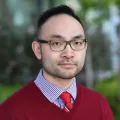
CBS National News featured Joshua Sherman, MD, and Todd P. Chang, MD, MAcM, on their use of virtual reality to safely teach medical residents how to approach life-or-death scenarios in pediatrics—allowing the trainees to experience the stress of the real-life experience. Marie La Fortune, MD, who had tested VR as a study subject, demonstrated the technology. USA Today also did a feature story on this project.

Jay Desai, MD, and Bradley Peterson, MD, reported that stuttering is linked to reduced blood flow in the area of the brain associated with language. Their study was published in the journal Human Brain Mapping and was covered by a wide range of national and international news outlets, including U.S. News & World Report, NIH Medline Plus, the Daily Mail, BBC World Service and IFL Science.
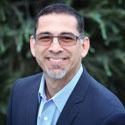
The Wall Street Journal interviewed Jeffrey Gold, PhD, about his studies on the use of virtual reality (VR) to manage pain and anxiety in some CHLA patients. Patients using VR while having blood drawn reported less pain and anxiety related to the procedure.

Leo Mascarenhas, MD, MS, and colleagues reported on a phase 1/2 clinical trial of larotrectinib, a novel therapy that targets a type of genetic mutation known as TRK fusion, which accelerates cancer-cell growth. The studies, published in the New England Journal of Medicine and Lancet Oncology, found that the new therapy was highly selective in inhibiting the growth process in many types of cancer that harbored a TRK fusion, and that it had a favorable safety profile. The FDA granted larotrectinib breakthrough therapy designation and an expedited review for approval.
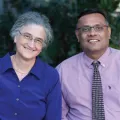
Research faculty participated in efforts to raise awareness for the March for Science to oppose proposed budget cuts to science and medical research. Leo Mascarenhas, MD, MS, was interviewed by CBS2 Los Angeles for a pre-march broadcast news feature, and Diane Brown, MD, PhD, who joined thousands in downtown Los Angeles to support the effort, was featured in the Los Angeles Times’ coverage of the event.
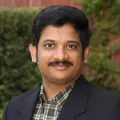
Ram Kumar Subramanyan, MD, PhD, discussed how hypoplastic left heart syndrome (HLHS) is surgically repaired and how a new study, conducted in conjunction with the Mayo Clinic, is investigating the use of regenerative medicine to help babies born with this severe heart defect. The story was carried by CBS National News.

An international team of hematologists that included Guy Young, MD, reported results of a multicenter phase 3 study called HAVEN 1 in the New England Journal of Medicine demonstrating that for patients with hemophilia A with inhibitors, a novel therapy called emicizumab decreases the incidence of bleeding episodes by 87 percent. The report received coverage from national media outlets such as United Press International and U.S. News & World Report. The drug was subsequently approved by the FDA based on this study.
Awards and Honors

The National Heart, Lung, and Blood Institute of the National Institutes of Health (NIH) has awarded Denise Al Alam, PhD, $2.6 million for her research into early fetal development of the human lung. Her research into these developmental processes has potential applications for premature babies and children with congenital pulmonary abnormalities.

Sebastien Bouret, PhD, was granted $2.6 million by the National Institute of Diabetes and Digestive and Kidney Diseases of the NIH for his research into how leptin (a hormone that inhibits hunger) and nutritional programming impact the development of diabetes and obesity. This research will study the role of maternal obesity in the development of metabolic abnormalities in offspring.
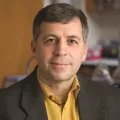
David Cobrinik, MD, PhD, of The Vision Center at Children’s Hospital Los Angeles, was awarded a four-year grant totaling $1.665 million from the National Eye Institute of the NIH to support his research to improve understanding of how cone photoreceptors in the retina develop.
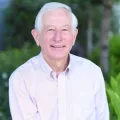
Yves DeClerck, MD, along with David C. Lyden, MD, PhD, from Weill Cornell Medicine, was awarded $2.2 million from the National Cancer Institute of the NIH to study how exosomes released by tumor cells are taken in and modify the bone marrow, leading to cancer metastasis. Greater understanding of this process could lead to new strategies for reducing or preventing metastatic disease.
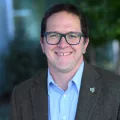
Mark R. Frey, PhD, of the Developmental Biology and Regenerative Medicine Program, has been promoted to associate professor with tenure in the Departments of Pediatrics and Biochemistry and Molecular Medicine at the Keck School of Medicine of USC. Frey’s lab is interested in the role of growth factor signaling in the intestinal response to injury and inflammation.
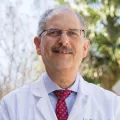
Lee J. Helman, MD, director of the Cancer and Blood Diseases Research Program at The Saban Research Institute of CHLA, has been named a vice-chair of the Stand Up To Cancer (SU2C) Scientific Advisory Committee. With SU2C’s increased focus on pediatric cancer, Helman’s expertise in this area will be beneficial to the organization’s growing research portfolio.

Carla Hill, MPA, was awarded $1 million by the California Department of Public Health Adolescent and Family Life Program to improve teen pregnancy outcomes, reduce the rate of repeat pregnancies, and assist with re-entry into school or continuation of education. The funding will support research to enable evidence-based interventions for expectant and parenting adolescents with a focus on increasing access to and utilization of services, including social and emotional support.

Deborah Holder, MD, was awarded $1 million by the Ahmanson Foundation to acquire new electroencephalogram (EEG) machines critical to recording electrical signals of the brain to diagnose epilepsy. Ambulatory units will enable the monitoring of patients as they are transported to different areas of the hospital, providing physicians with the information needed to deliver more accurate and personalized treatment. The equipment will facilitate research initiatives, including one to determine the precise location of seizure onset.

A team of researchers led by Michele Kipke, PhD, at CHLA, and Thomas Buchanan, MD, and Steven Siegel, MD, PhD, of the Keck School of Medicine of USC, received a prestigious Clinical and Translational Science Award from the NIH. The $36.6 million grant will support continuation of the Southern California Clinical and Translational Science Institute (SC CTSI), the hub for community engagement in clinical and translational research at USC and CHLA.
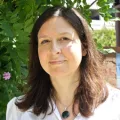
Natasha Leporé, PhD, was awarded $1.7 million from the National Institute of Biomedical Imaging and Bioengineering of the NIH to study the impact of prematurity on brain development. The goal of the research is to develop ways to detect cognitive problems and behavioral disorders in premature babies before the symptoms arise, improving physicians’ ability to design early interventions and encourage healthy neurological development.

Pat Levitt, PhD, received $1.3 million from the JPB Research Network on Toxic Stress, a project of the Center on the Developing Child at Harvard University. This award will fund ongoing research into the development of biomarkers to detect toxic stress in early life.

Ellen Lien, PhD, of the Developmental Biology and Regenerative Medicine Program, has been promoted to associate professor with tenure in the Department of Surgery at the Keck School of Medicine of USC. Lien’s research focuses on cardiovascular development and regeneration.

Brent Polk, MD, was awarded $1.5 million from the National Institute of Diabetes and Digestive and Kidney Diseases of the NIH to study tumor necrosis factor and its role in IBD. This new research seeks to reveal important information about the cellular and molecular activity that triggers IBD and may point to new treatment approaches for patients who no longer respond to current treatments.

Miguel Martinez, MSW, MPH, was awarded $2.5 million by the U.S. Department of Health and Human Services – Substance Abuse and Mental Health Services Administration to address disparities in access to youth-specific substance abuse treatment for gay and bisexual youth of color at risk for HIV/ AIDS. The funding will support research to identify gaps in service and enable the enhancement of integrated programs for medical, behavioral health and HIV services for this population.

An innovative, first-in-pediatrics study, available only at Children’s Hospital Los Angeles and led by Leo Mascarenhas, MD, MS, of the Children’s Center for Cancer and Blood Diseases, is enrolling children who have certain types of treatment-resistant cancer. The aim of this investigator-initiated phase 1 trial is to test the safety, tolerability and metabolism of the drug durvalumab in pediatric patients with solid tumors, lymphoma and central nervous system tumors.

Robert C. Seeger, MD, of the Children’s Center for Cancer and Blood Diseases, along with John M. Maris, MD, from Children’s Hospital of Philadelphia, was awarded a grant of nearly $11 million from the National Cancer Institute of the NIH to study new treatments for children with high- risk neuroblastoma while attempting to decrease treatment-related side effects. Collaborating with Seeger on this multisite study are CHLA’s Shahab Asgharzadeh, MD; Yves DeClerck, MD; Araz Marachelian, MD; Richard Sposto, PhD; and Judith Villablanca, MD, and Susan Groshen, PhD, from the Keck School of Medicine of USC.

Wei Shi, MD, PhD, of the Developmental Biology and Regenerative Medicine Research program at The Saban Research Institute, was awarded more than $2.6 million by the National Heart, Lung, and Blood Institute of the NIH to study the molecular mechanisms of pulmonary disease in Birt- Hogg-Dubé (BHD) syndrome—a genetic condition associated with benign skin tumors, lung cysts and kidney cancer. His goal is to understand the disease mechanisms in order to provide a foundation for novel preventive and therapeutic strategies.

Elizabeth Sowell, PhD, director of the Developmental Cognitive Neuroimaging Laboratory, part of CHLA’s Institute for the Developing Mind, was awarded nearly $2.8 million by the National Institute on Alcohol Abuse and Alcoholism of the NIH to study the impact of prenatal alcohol exposure on brain, cognition and facial morphology. The research will determine how maternal alcohol consumption patterns throughout pregnancy—including quantity, frequency and timing—impact the severity of fetal alcohol spectrum disorders.
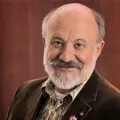
David Warburton, MD, of the Developmental Biology and Regenerative Medicine Research Program, was elected as a fellow to the American Association for the Advancement of Science, in recognition of his contributions to innovation, education and scientific leadership in the section of Medical Sciences. Warburton also was named an inaugural fellow of the American Thoracic Society in honor of his pioneering discoveries in lung development, neonatology and global environmental sciences.

Ashley M. Whitaker, PhD, ABPP-Cn, of the Children’s Center for Cancer and Blood Diseases, has completed American Board of Professional Psychology (ABPP) specialty board certification in clinical neuropsychology, as well as subspecialty board certification in pediatric neuropsychology. Whitaker is one of only about 1,000 neuropsychologists across the United States to achieve this professional milestone in clinical neuropsychology and one of about 100 to achieve it in pediatric clinical neuropsychology.

John Wood, MD, PhD, was awarded $2.5 million by the National Institutes of Health to study the relationship between cerebrovascular reserve (CVR) and white matter disease in patients with anemia who are at risk for having silent, white matter strokes leading to significant cognitive dysfunction. The research aims to validate CVR as a biomarker for white matter vulnerability that can be used as a means of discovery for silent stroke prevention.

Larry Yin, MD, was awarded $2.7 million from the U.S. Department of Health and Human Services Administration for Community Living to advance patient care for infants, children and adolescents with intellectual and developmental disabilities. The funding will support program development with emphasis on early intervention, health and quality assurance to strengthen the health and community services available at every stage of life for affected individuals.
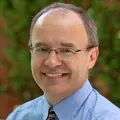
Michael Pulsipher, MD, along with Sung-Yun Pai, MD, from Boston Children’s Hospital, was awarded nearly $9 million from the National Institute of Allergy and Infectious Diseases of the NIH to study a new treatment approach for babies born with severe combined immunodeficiency (SCID). The goal of the study is to determine the lowest dose of chemotherapy needed for babies with SCID undergoing bone marrow transplantation—to effectively restore the immune system with less toxicity than the higher-dose regimens currently in use.
Pulsipher and Michael Keller, MD, from Children’s National Health System in Washington, DC, were awarded $4.8 million by the California Institute for Regenerative Medicine (CIRM) to study the use of a new T-cell therapy to fight active viral infections in children with severe immune deficiencies. The research will test the feasibility of using “viral-specific” T-cells engineered to target three common and potentially toxic viruses—Epstein-Barr virus, cytomegalovirus and adenovirus—that can lead to severe organ damage or death in children with weakened immune systems.
In addition, Pulsipher was awarded $1.3 million by the National Heart, Lung, and Blood Institute of the NIH to improve early immune-suppression-free survival for young patients with severe aplastic anemia. The funding represents a Clinical Trial Network Core Center Renewal for the Pediatric Blood and Marrow Transplantation Consortium headquartered at CHLA.
The Cancer Immunotherapy Trials Network (CITN) was funded by Congress at the request of former President Barack Obama as part of the Beau Biden Cancer Moonshot Initiative. Immunotherapy to treat pediatric cancer was designated one of 10 priority areas, leading to the development of the Pediatric CITN. As one of the original hospitals in the U.S. approved to treat patients using CAR T-cell immunotherapy, CHLA is now one of only 10 institutions in the Pediatric CITN. Pulsipher, of the Children’s Center for Cancer and Blood Diseases, will serve on the steering committee, which prioritizes clinical trials for study through this consortium.
New Faces
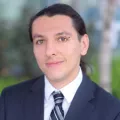
Stefano Da Sacco, PhD, joined the Department of Urology. He earned his doctorate in tissue engineering while studying at the University of Padua and USC, and completed his postgraduate training at CHLA in the laboratory of Roger De Filippo, MD, FACS, FAAP, and Laura Perin, PhD. Da Sacco’s research focuses on the relationship between the extracellular matrix and self-renewal, differentiation and specification of nephron progenitors.

Lee Helman, MD, joined the Children’s Center for Cancer and Blood Diseases as director of Basic and Translational Research. His responsibilities include setting strategic priorities, recruiting new investigators and organizing scientific teams. Helman comes from the National Cancer Institute at the National Institutes of Health, where he most recently served as scientific director for clinical research in the Center for Cancer Research.

Sonata Jodele, MD, joined the Children’s Center for Cancer and Blood Diseases as medical director of the Blood and Marrow Transplantation Program (BMT). She will provide leadership for multidisciplinary BMT clinical programs and further development of clinical research efforts. Her research focus is on reducing organ toxicity after hematopoietic stem cell transplantation, with an emphasis on transplant-associated thrombotic microangiopathy. Jodele comes to Children’s Hospital Los Angeles from Cincinnati Children’s Hospital Medical Center.

Allison T. Knoll, PhD, joined the Division of Research on Children, Youth and Families. She earned her doctorate in neurobiology from Harvard University and began a postdoctoral fellowship at the Zilkha Neurogenetic Institute at the Keck School of Medicine of USC, and completed the program in the laboratory of Pat Levitt, PhD, at The Saban Research Institute. Knoll’s research examines the genetic and environmental basis of individual differences in typical social behavior and in risk for neurodevelopmental disorders.
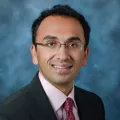
Omkar P. Kulkarni joined CHLA as the hospital’s first chief innovation officer. He is responsible for fostering innovation across the clinical enterprise—including finding successful new methods of care, incubating new medical tools and software, and rallying communities in and out of the hospital to solve problems in the field of pediatrics. Kulkarni will also work with the Consortium for Technology and Innovation in Pediatrics (CTIP).
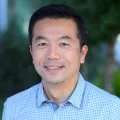
John T. Li, MD, joined the Department of Anesthesiology and Critical Care Medicine and The Saban Research Institute of Children’s Hospital Los Angeles. His research interests are focused on the immunology of acute respiratory distress syndrome (ARDS) and TGF-ß signaling in lung diseases and cancer, with a goal toward understanding the adaptive immune response in ARDS and identifying pulmonary antigens that drive this process.

Aaron Nagiel, MD, PhD, joined The Vision Center and The Saban Research Institute, where he leads an active clinical and translational research program aimed at developing better ways to treat pediatric retinal diseases through state-of-the-art imaging, advanced surgical devices and novel treatments, including gene therapy and stem cell-based therapy.
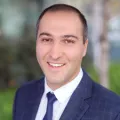
Sargis Sedrakyan, PhD, joined the Department of Urology. He earned his doctorate in regenerative medicine from the University of Padua in Italy. Sedrakyan completed his postdoctoral fellowship in developmental biology and regenerative medicine at The Saban Research Institute. His research focuses on the role of endothelial injury and extracellular vesicles in kidney disease and amniotic fluid stem cell therapy in Alport syndrome.

Gianluca Turcatel, PhD, joined the Department of Pulmonology. He earned his Master of Science degree and doctorate from the University of Padua. Turcatel’s research interests focus on embryonic and postnatal lung development, adult lung injury and repair, and tissue engineering.